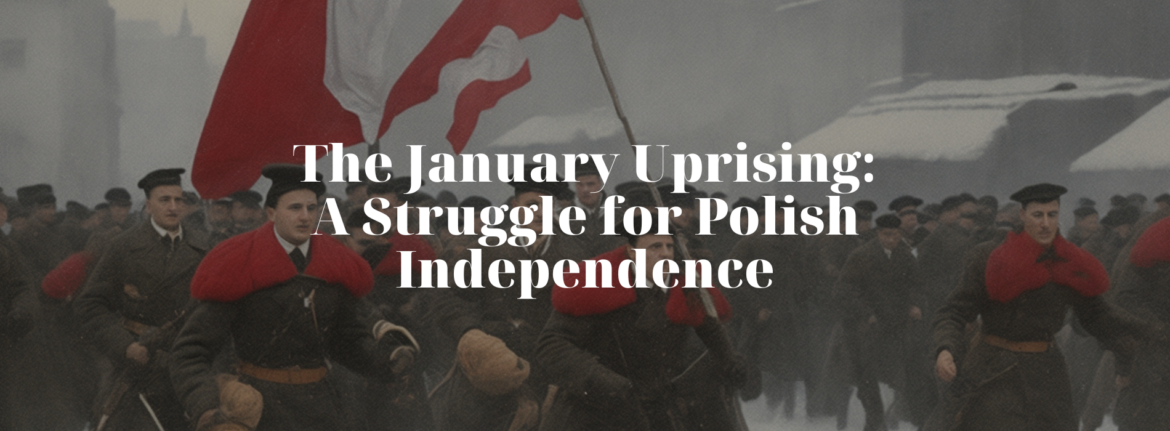The January Uprising, known in Polish as „Powstanie Styczniowe,” was a pivotal moment in the history of Poland, Lithuania, Belarus, Ukraine, and the broader region under the Russian Empire. Beginning on January 22, 1863, this insurrection was primarily centered in the Russian-controlled Kingdom of Poland. It represented a significant effort by the Polish people to end the Russian occupation and reclaim their independence.
The Uprising emerged from a complex historical context marked by the long-standing desire for autonomy and national identity within the Polish and Lithuanian territories. Following the partitions of the Polish-Lithuanian Commonwealth in the late 18th century, these regions came under the control of neighboring empires, including Russia. The Uprising was not an isolated event but rather the culmination of several previous attempts by the Polish people to regain their sovereignty.
One of the key factors that led to the outbreak of the Uprising was the conscription of young Polish activists into the Imperial Russian Army, ordered by Aleksander Wielopolski, the head of the civil administration in the Russian partition. This act was seen as a direct threat to the Polish national movement and acted as the catalyst for the Uprising.
The Uprising was characterized by its guerrilla warfare tactics, as the insurgents were significantly outnumbered by the Russian forces. Despite their bravery and determination, the Polish insurgents faced severe challenges, including a lack of substantial foreign support. The Russian response was swift and brutal, with public executions and deportations to Siberia being common reprisals against the insurgents.
Despite its eventual failure, the January Uprising had a profound impact on the Polish national consciousness. It played a crucial role in shaping the Polish identity and the nation’s subsequent struggle for independence. The Uprising also influenced Polish culture and literature, providing themes and inspiration for various works of art and literature.
Interestingly, the Uprising saw support from international figures like Italian General Francesco Nullo and French Officer Francoius Rochebrune, highlighting its significance in the broader European context of nationalistic struggles.
The legacy of the January Uprising is multifaceted. It is remembered as a symbol of the Polish struggle for freedom and national identity. It also served as a precursor to the concept of an underground Polish state, which would later be realized more fully during World War II. The spirit of the Uprising continued to inspire Polish efforts for independence, ultimately contributing to the rebirth of Poland as a sovereign nation after World War I.
